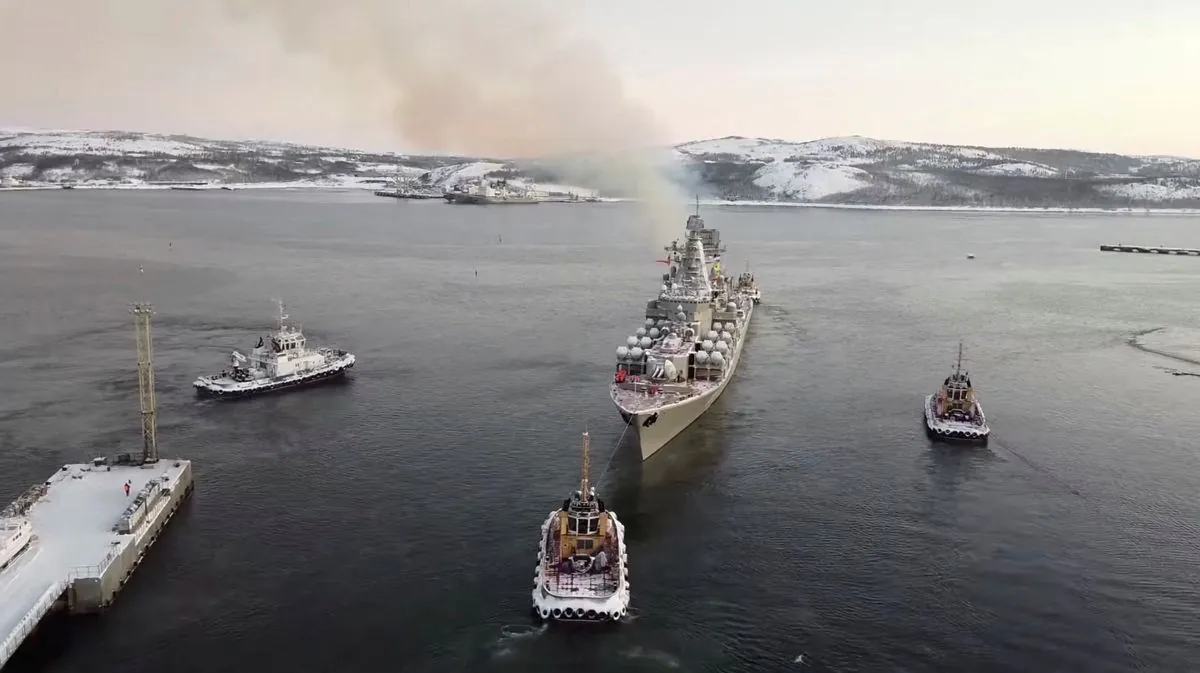The U.S. Coast Guard recently observed a group of Russian naval vessels entering American waters off the coast of Alaska. This maneuver, executed to circumvent sea ice, aligns with established international protocols and customs.
A U.S. Coast Guard cutter crew witnessed the Russian military vessels cross the maritime boundary, advancing 30 miles into the U.S. Exclusive Economic Zone. This area extends beyond the standard territorial waters. The Russian fleet comprised two submarines, a frigate, and a tug boat, with the encounter taking place approximately 60 miles northwest of Point Hope.
Rear Adm. Megan Dean stated that the Coast Guard actively patrols maritime borders in the Bering Sea, Bering Strait, and Chukchi Sea to "protect U.S. sovereign interests, U.S. fish stocks and promote maritime norms."
This incident highlights the complex geopolitical dynamics in the Arctic region. The Bering Sea, a marginal sea of the Pacific Ocean, is separated from the open ocean by the Aleutian Islands. The U.S. Exclusive Economic Zone extends 200 nautical miles from the coastal baseline, underscoring the vast area under U.S. jurisdiction.
Point Hope, near where the encounter occurred, is one of North America's oldest continuously occupied sites, emphasizing the historical significance of this region. The Chukchi Sea and Bering Strait, both marginal seas of the Arctic Ocean, play crucial roles in international maritime routes.
The proximity of Russia and the United States in this area is notable, with only 55 miles separating the two nations at the Bering Strait's narrowest point. This closeness has led to both cooperation and tension over the years, particularly in Arctic matters.
Climate change has significantly impacted the Arctic, altering sea ice patterns and navigation routes. The Northwest Passage, a sea route through the Arctic Ocean, has become increasingly navigable due to ice melt. These changes have heightened the strategic importance of the region, both for resource exploitation and environmental concerns.
The Arctic Council, an intergovernmental forum promoting cooperation among Arctic states, plays a vital role in managing international relations in this sensitive area. Despite geopolitical tensions, the U.S. and Russia have a history of cooperation in Arctic search and rescue operations.
It's worth noting that Alaska, now a crucial part of U.S. Arctic strategy, was purchased from Russia in 1867. Today, the region's unique ecosystems and wildlife, including polar bears and walruses, face challenges due to rapid environmental changes.
This incident serves as a reminder of the ongoing need for clear communication and adherence to international norms in the increasingly accessible and strategically important Arctic region.
